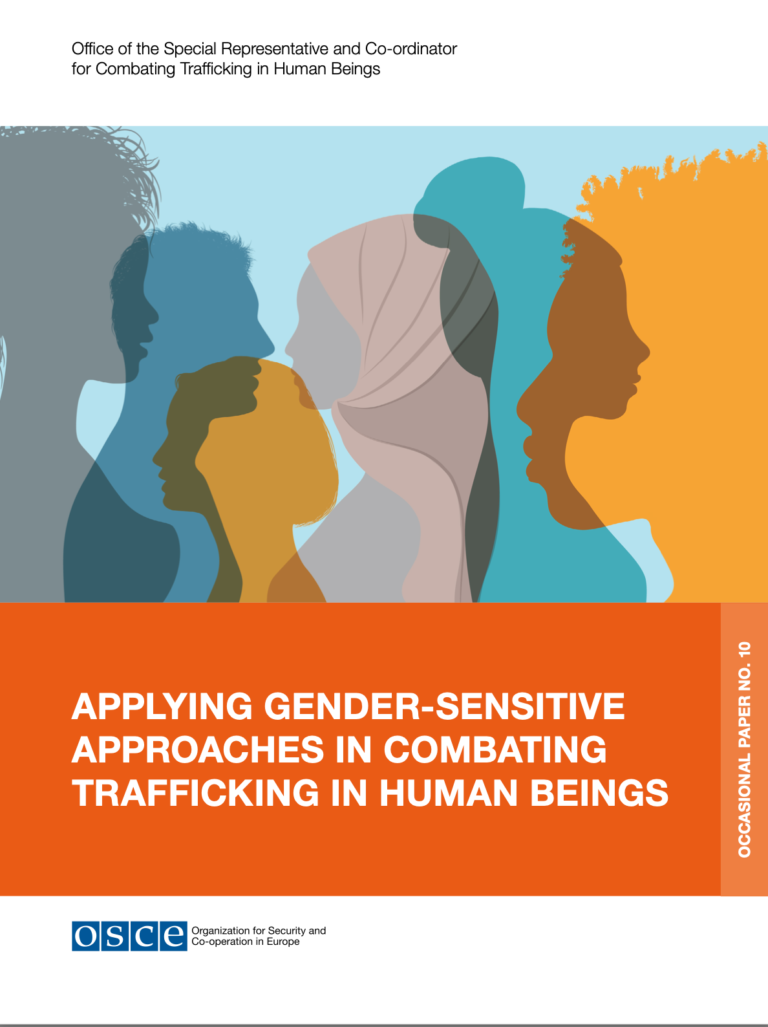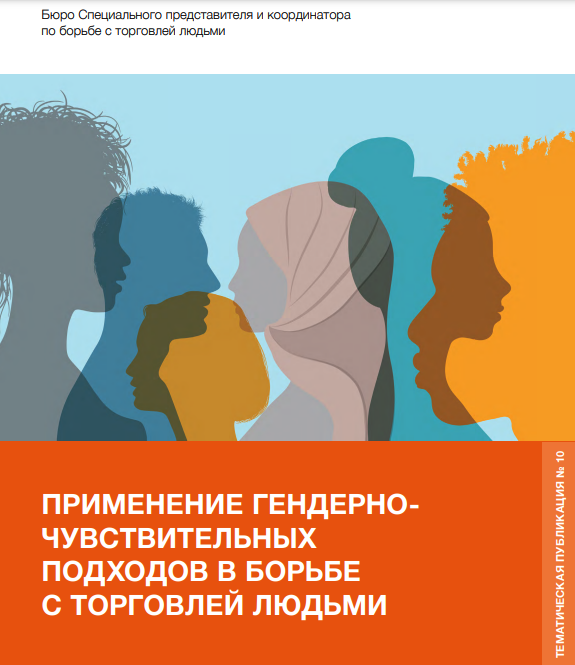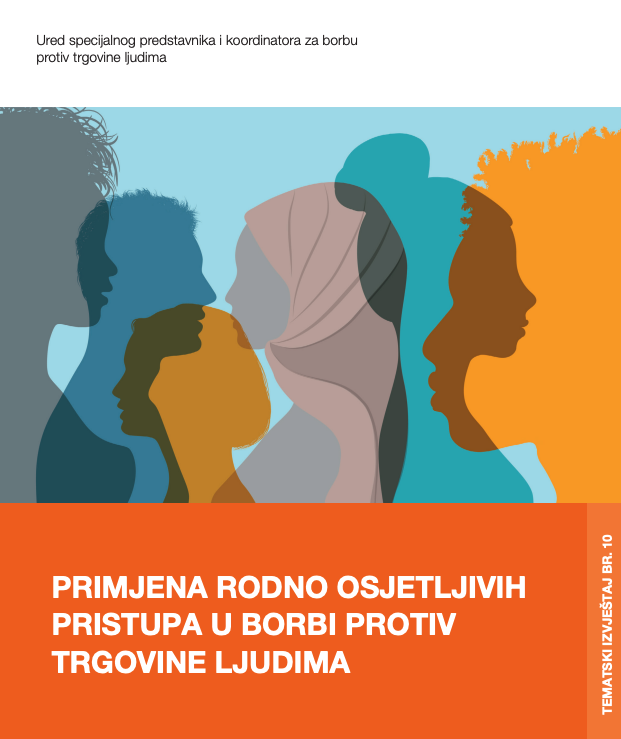By ratifying the international instruments related to combating trafficking in human beings (THB) and adopting the OSCE commitments regarding the same, all of the OSCE’s 57 participating States have committed themselves to implementing gender-sensitive approaches to combating THB. While these instruments take into account the fact that trafficking affects women, men, girls and boys, in none of the legal or policy anti-trafficking instruments is there clear guidance about what a gender- sensitive approach entails. Moreover, current approaches are fragmented, as they do not cover all aspects of the crime of THB or responses as related to gender.
This Occasional Paper is based on findings from a multi- method research project (hereinafter the Study), which included surveys, expert interviews and expert group meetings carried out with participants from more than half of the OSCE’s participating States (36). By bringing together the voices of survivors, anti-trafficking experts, service providers and law enforcement, this paper provides a broad account of gender aspects in THB. It also offers a basis for discussion about possible ways to apply gender-sensitive approaches. Supplementing the data from the Study, desk research and an analysis of existing literature on the topic of THB and gender has demonstrated that behind the term “gender-sensitive ap- proaches”, there are a number of elements related to the crime of THB and responses to it that are still concealed by gender stereotyping.



